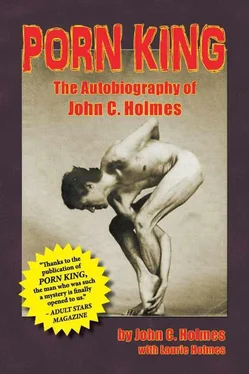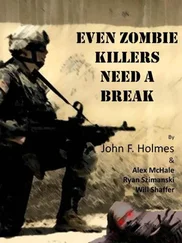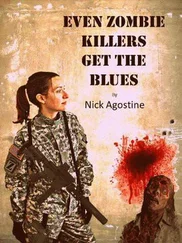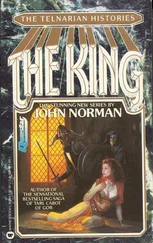“If you need new school clothes, or whatever,” Mother would mutter repeatedly, sounding like a tape recorded message, “then go out and earn them.”
By the time Harold’s finances became a real concern, I was an old hand at running trap lines. The money I made from selling pelts came in handy but it never seemed to add up fast enough. So, between chores around the house and my schoolwork, I baled hay, collected maple syrup, and shoveled snow, depending on the season. For food, the family relied almost entirely on Mother’s garden and hunting. I’d learned to hunt as a sport, and then had to turn to it for survival. Now, if anyone asks me to go hunting, I refuse. I do not approve of killing and maiming animals for sport. And I find it impossible to understand how anyone who calls himself a sportsman can stop at a McDonald’s on the way to blowing off some poor animal’s head.
Money, or the lack of it, was actually a minor problem in living with Harold. We’d managed on next to nothing before, thanks to Mother’s tenacity and boundless determination. The real problem was Harold himself. He had a dark side, an ugly sickness that no one suspected until it was too late. The first indication that Harold was “different” became apparent several months after he and Mother married, when he began to have trouble getting out of bed in the mornings. Physically, he appeared fine, but he no longer greeted each day with his characteristic burst of energy. He turned suddenly depressed and listless, almost impossible to budge. Mother was understandably concerned, and baffled. “I don’t know what to make of him,” she would moan. “He seems to have lost interest in everything.” Harold couldn’t explain the change in his behavior either; he didn’t even try to make excuses. He simply moved about the house like a sloth as he readied for work.
He never missed a day on the job. Whatever possessed Harold didn’t affect his performance at work. He functioned normally, his co-workers confided in Mother, offering a glimmer of encouragement. But they should have seen him at home. Night after night, he returned from the office and promptly fell asleep in his easy chair. When any of us called him to dinner, he waved us away. He even ignored Mother.
One evening, when everyone but Harold was seated for dinner, Mother announced that the meal had been served. Not getting a response, she called again. “Come, dear,” she said, “your food’s getting cold. We’re waiting.” Another moment of silence passed. “You must eat something, Harold,” she pleaded. Once again, he failed to answer. This time Mother pushed herself from the table and made for the living room. She found Harold’s chair empty. He had gone to bed. Just when it appeared that Harold would never snap out of his lethargy, his condition completely reversed itself. For months, sleep had been his ally; now it became his enemy. He’d go for days without shutting his eyes. He turned unpredictable and often violent, even showing signs of madness. Harold didn’t drink coffee or smoke anything, he wouldn’t touch alcohol and he didn’t take drugs. Nevertheless, he had all the symptoms of the worst junkie imaginable. Deprived of drugs, an addict will try to run over his best friend with a car, beat him with a club, strangle cats, and kill dogs. Harold was not only capable of doing those things, he did them. Once he even rammed his hand through a harvesting machine, cutting off his thumb and three of his fingers. When he woke up from surgery, he told mother, “I’ll never have to work again.” Harold was always gentle with Mother. He never raised a hand to her, but he sure beat the shit out of her kids. My older brothers and sister got the worst of it until they became of age and moved out, unable to take his abuse anymore. That left me as they only target around.
One day, Harold kicked me in the spine when I failed to respond to his order to take out the trash. “I shouted your name ten times,” he roared. “John! John! John! Your name’s John, isn’t it?”
“I guess I didn’t hear you, Harold,” I said earnestly. “I’m sorry…” Wham!
Another time he threw me down a flight of twelve stairs to the concrete floor of the basement. I had my head rammed into heavy oak doors more times than I care to remember. I got slugged in the face and knocked over backward, then picked up by the ankles and spanked while airborne. If he was really angry he turned me around and slammed a fist into my stomach.
It’s unfair to say that Harold had turned completely mad. For the first few years, he was up and down, alternating between manic and depressive states. We loved him when he was down because he was so harmless; he never even talked. But with the turnabout he became a horror. We could sense the switch coming. Watching Harold was like watching an animal before an earthquake. He grew restless and acted in a manner that was abnormal, even for him. Eventually, we were able to mark his changes by the calendar, as he’d go through exact six-month cycles.
When I was nine, Mother gave birth to another son, David, and from that day on my life at home was never the same. As Harold’s flesh and blood, David could do no wrong. Anything David wanted was his, even if it didn’t belong to him. To make certain that David always got his way, Harold taught him to scream at the top of his powerful lungs, which brought Harold running. David was never satisfied with his own toys. He wanted what belonged to me, things I had bought with my hard-earned money. David wound up with them and I was left with bruises.
“Why is Harold always hitting me?” I asked Mother one day as she pressed a cold cloth against my reddened cheek.
“He doesn’t mean to, sweetheart. It’s just that he can’t help himself.”
“Then why doesn’t he hit David? David can do anything and I get the blame.”
“David’s just a baby.” She replied, “He doesn’t know what he’s doing.”
“Yes, he does.”
“Let’s not make trouble, darling. Let’s try to be nice to David and Harold too. Harold needs all our help and prayers.”
Pray for Harold? Be nice to Harold? I couldn’t do that. It was much easier to hide whenever Harold was around. The dining room provided the perfect hideaway. We had a huge dining table, made of oak; that Mother always kept extended with three large leaves and covered with a heavy damask cloth that reached to the floor. The table was seldom used, except for holidays and the rare times we had company. We always ate in the kitchen. Every time I’d hear Harold’s car pulling into the driveway, I’d run for cover under the table. Some of my fondest memories are of listening to the family fighting, going crazy, while I lay peacefully on my back staring at its underside. Resurfacing without being seen took some planning. I always tried to wait until dinner time, when everyone was seated in the kitchen. At that point, Harold would inevitably bellow, “Where the fuck is that kid!?” With that I’d appear as if I’d just come in from outside. My luck held out for nearly two years. Then one day, for some reason, Harold looked under the table. I knew I was in trouble even before his big paw shot forward at me. “Damn you,” he roared. “I’ve been calling for ten minutes!” I felt myself being dragged out into the open by the seat of my pants, and the pounding began.
On Sunday mornings, I sought refuge in church. Harold attended church, too—he came from a strict religious family, Mother said—so I lingered long after the services for Sunday school. That went on for nearly twelve years. For my perfect attendance, I later received a certificate.
I discovered the town library as well. It was small and quiet and private, seldom occupied by more than five people at once. Following the dining room table incident, I spent most of my time secluded between rows of bookshelves. I became an avid reader. Historical novels interested me most, and anything that had to do with nature and ancient civilizations. To me, the real mysteries were not by Agatha Christie and Erle Stanley Gardner, but why archaeologists explored the ruins of lost cultures.
Читать дальше












